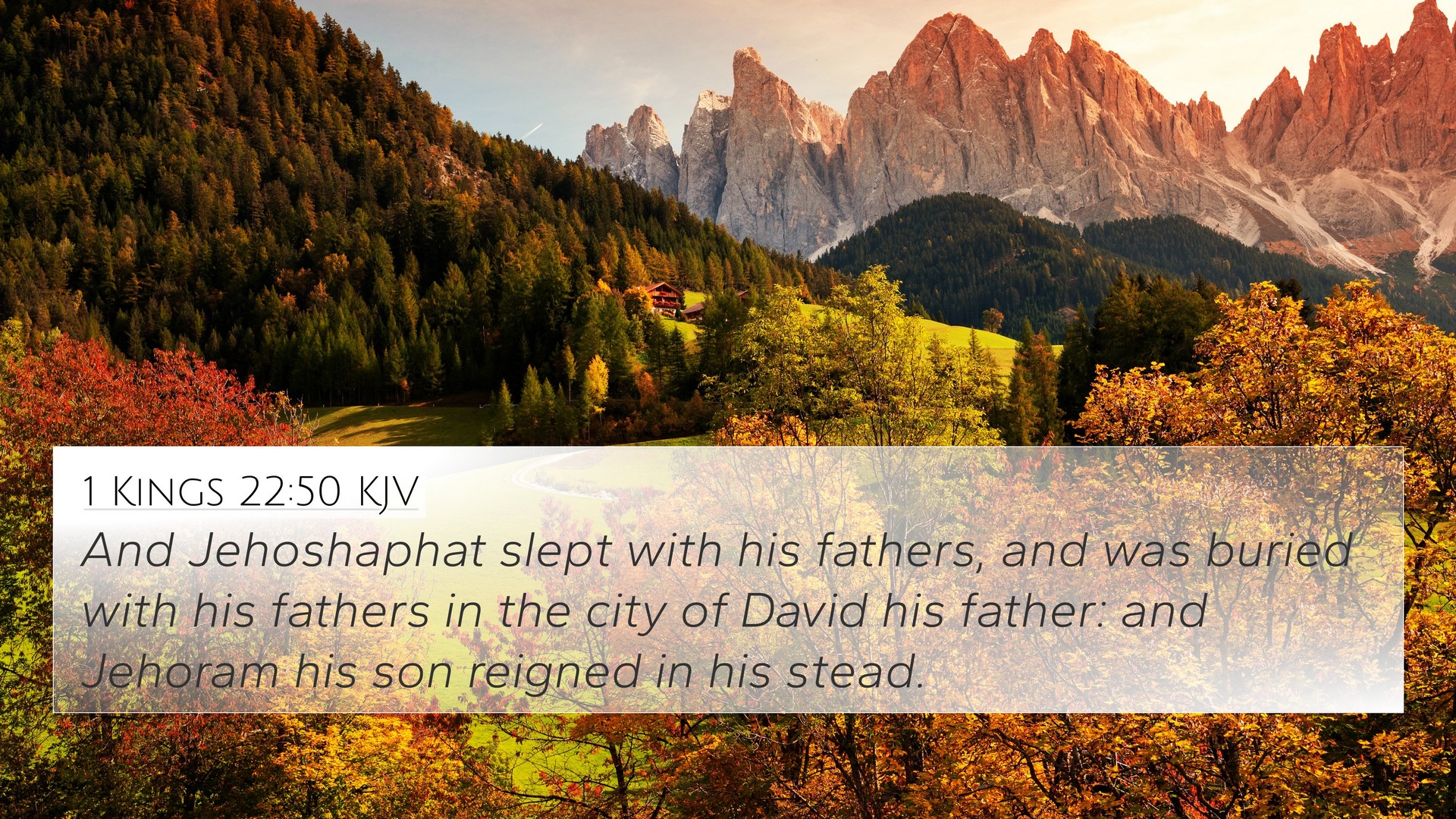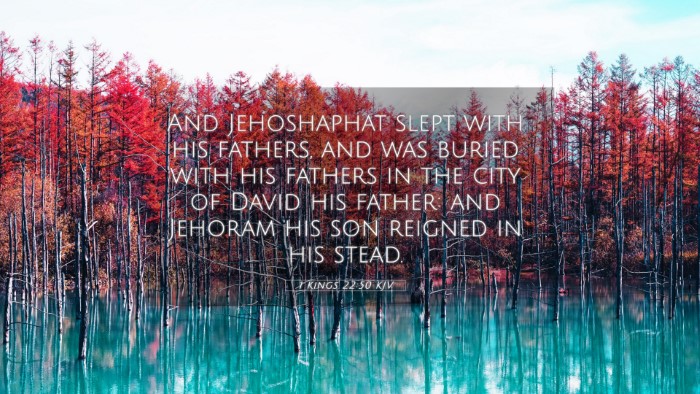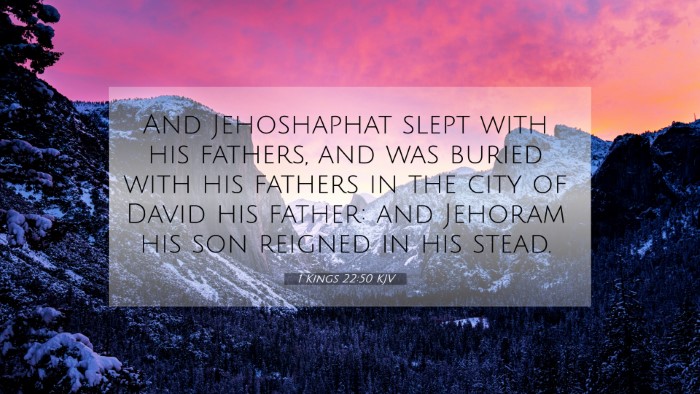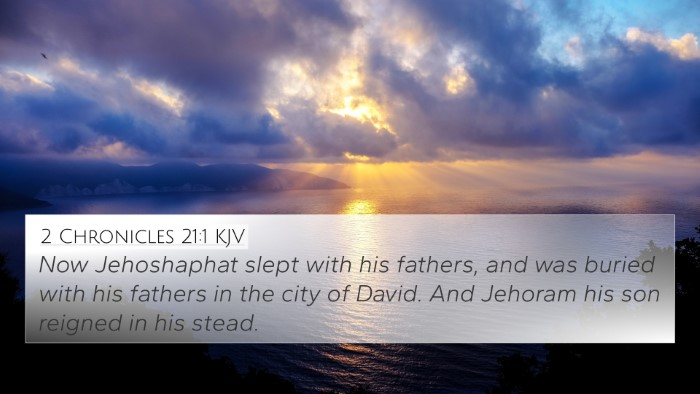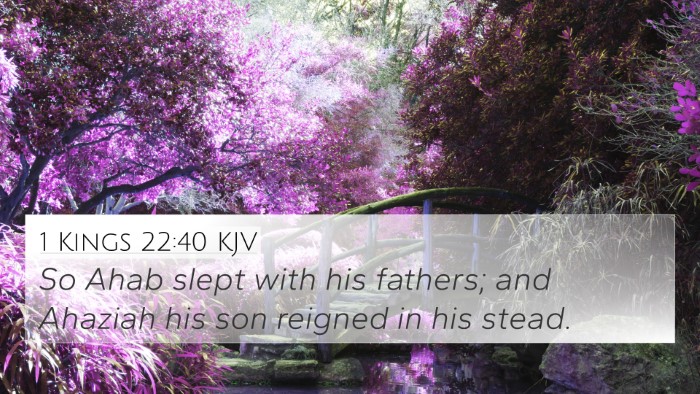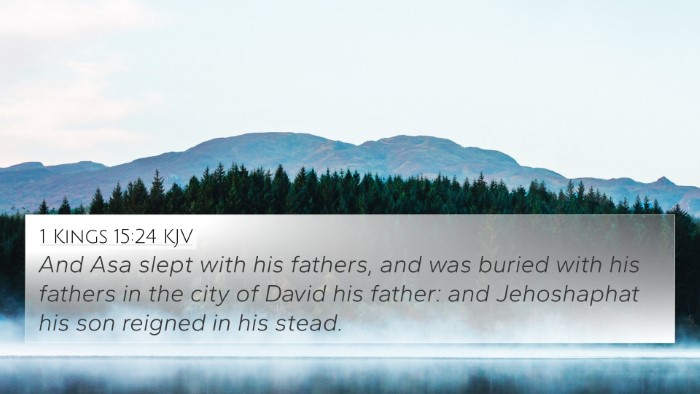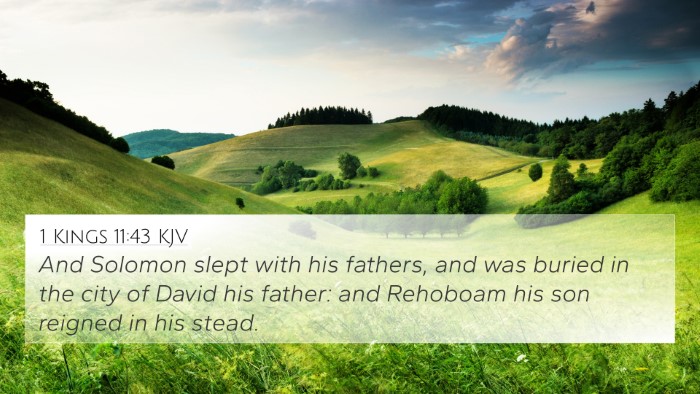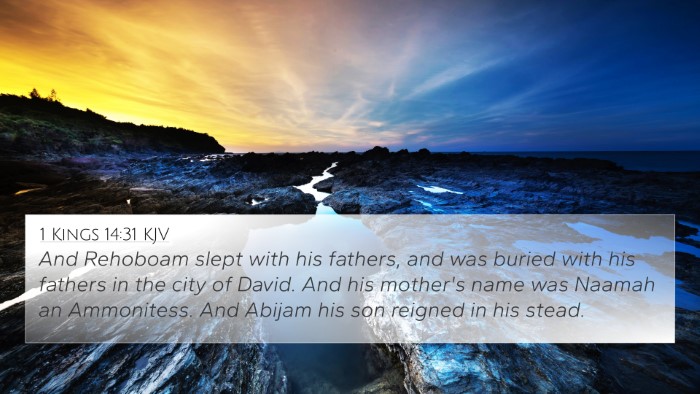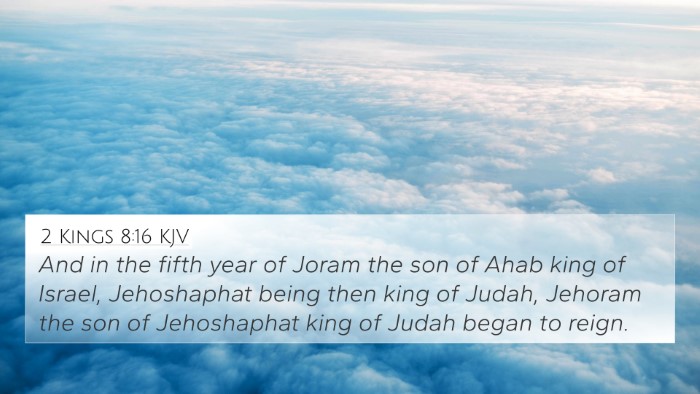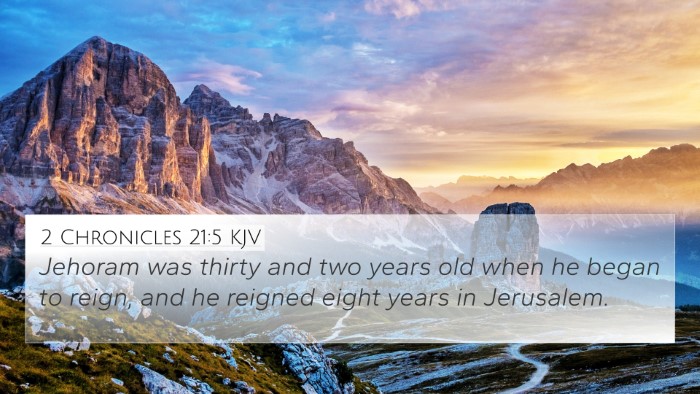Understanding 1 Kings 22:50
Bible Verse: 1 Kings 22:50 - “And Jehoshaphat slept with his fathers, and was buried with his fathers in the city of David: and Jehoram his son reigned in his stead.”
Context and Overview
This verse concludes the account of King Jehoshaphat of Judah, a ruler noted for his efforts to reform and follow the ways of the Lord. His death marks a significant transition in the Judahite monarchy, paving the way for the reign of his son Jehoram.
Commentary Insights
- Matthew Henry: Henry emphasizes that Jehoshaphat was a king who sought to please God and enjoyed a reign characterized by relative peace. His resting with his fathers indicates a peaceful end and a legacy aligned with God’s will.
- Albert Barnes: Barnes notes the importance of Jehoshaphat's reign and his dedication to the Lord. His burial in the city of David signifies honor and continuity of the Davidic line. The shift to Jehoram is seen as a crucial point in Judean history, noting concerns about Jehoram's potential deviations from his father's righteous path.
- Adam Clarke: Clarke connects Jehoshaphat’s reign with his initiatory reforms and military alliances, particularly with Israel, suggesting that Jehoram’s lineage might reflect the complexity of these alliances. Clarke additionally notes the prophetic influences during Jehoshaphat’s reign that impact the narrative of his sons.
Thematic Connections
The death of Jehoshaphat presents thematic connections throughout the Scriptures, particularly concerning leadership, legacy, and the consequences of aligning with other nations.
Cross-References
- 2 Chronicles 20:30: Highlights the peace experienced under Jehoshaphat's reign.
- 1 Kings 15:24: Discusses the outcomes of good and evil kings in Israel and Judah.
- 2 Chronicles 21:4: Details the reign and actions of Jehoram.
- 1 Kings 22:3: Reflects on the alliances and military expeditions during Jehoshaphat's reign.
- Proverbs 4:7: Emphasizes wisdom in leadership, a trait that Jehoshaphat sought.
- Micaiah's Prophecy (1 Kings 22:16): Reinforces the value of prophetic guidance which Jehoshaphat valued.
- 2 Kings 8:16: Continues the narrative of Jehoram, connecting the lineage and consequences of leadership choices.
Linking Bible Scriptures
The transition from Jehoshaphat to Jehoram illustrates the generational effects of leadership within a covenant community. It presents opportunities for reflecting on similarities and differences between the approaches of the father and son, particularly concerning faithfulness to God.
The Role of Leadership in Scripture
Throughout the Bible, themes of righteous and unrighteous leadership play crucial roles. The contrasting reigns of various kings of Israel and Judah provide insights into the significance of God's covenant. For instance, examining 2 Kings 12:2 reflects on how the progression of leadership impacts the spiritual vitality of Israelite society.
Comparative Bible Verse Analysis
In a comparative analysis, one may look at how Jehoshaphat’s alliances, particularly with Ahab (1 Kings 22:4), parallel other alliances made by kings in both Israel and Judah. This can evoke a discussion on the risks of such political unions.
The Legacy of Jehoshaphat's Reign
Jehoshaphat’s legacy is evident in the subsequent actions of Jehoram and the later kings. His life invites reflection on how the choices of one generation influence the next. The narrative in 2 Kings 14:22 leads to a broader understanding of the long-term consequences of a leader's pursuit of the divine compared to self-serving agendas.
Conclusion
1 Kings 22:50 encapsulates vital transitional moments within the biblical narrative, urging readers to consider the broader implications of leadership, faithfulness, and covenant. The connections drawn through Biblical cross-referencing emphasize that understanding one verse often requires delving into multiple scripture contexts.
